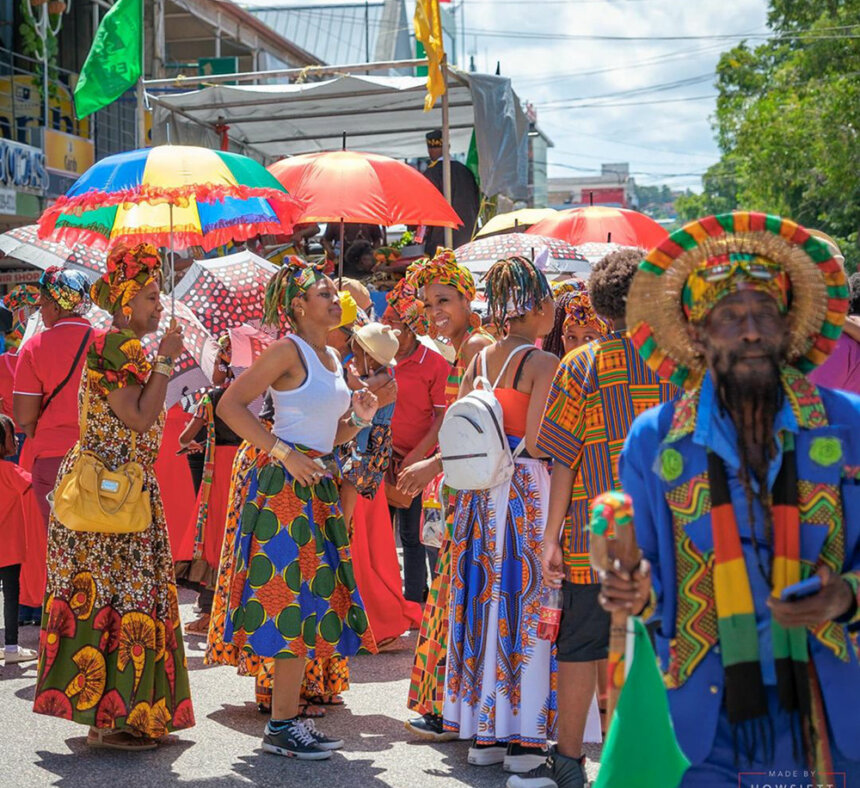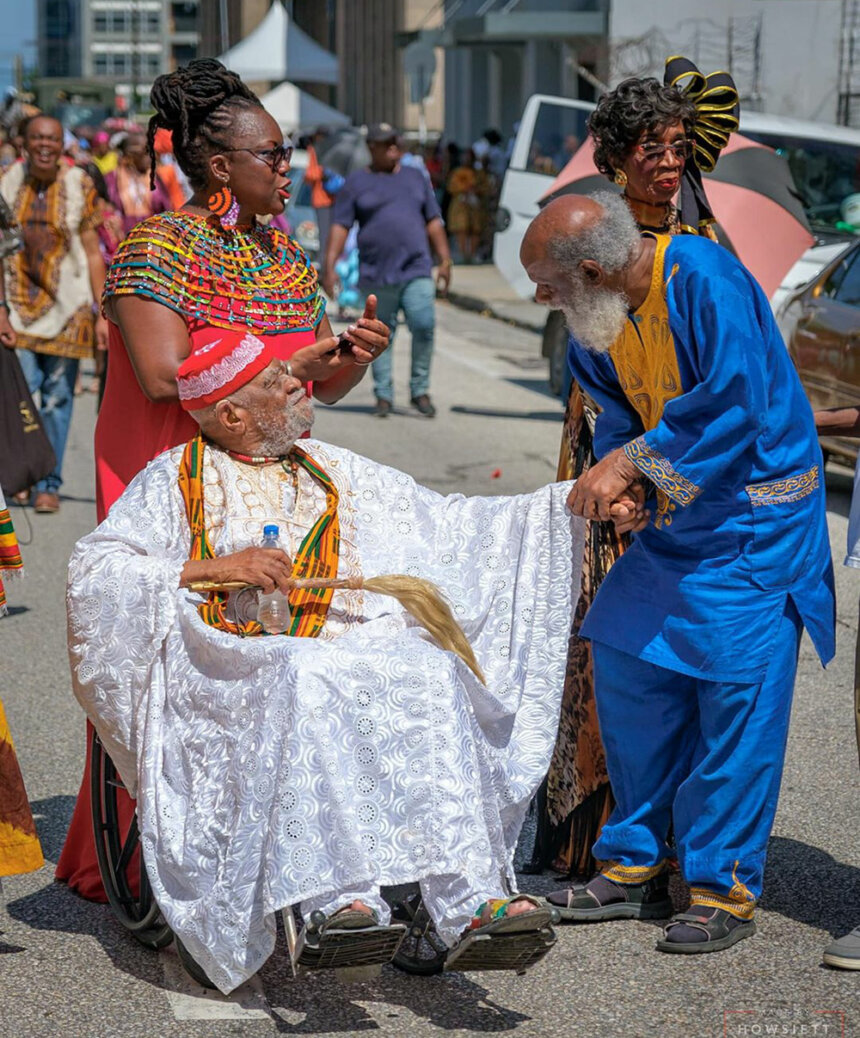August 1, 1834, marked the day that the Slavery Abolition Act came into effect across the British Empire. The worldwide African community recognizes Emancipation Day, a day of commemoration and a celebration of freedom.
Emancipation Day holds a profound significance to Africans in Trinidad and Tobago, commemorating the abolition of slavery on August 1st, 1834.
The island nation embraces this historic occasion with great fervor and joy, celebrating its rich African heritage and cultural diversity. The festivities come alive with a vibrant cultural parade that showcases the essence of Trinidad and Tobago’s cultural tapestry.
The nation embraces this historic event with utmost enthusiasm, and the celebrations are marked by a captivating cultural parade that beautifully fuses local traditions with a hint of Ghanaian culture and fashion.
The parade showcases an array of stunning costumes inspired by Ghanaian fashion, featuring colorful prints and intricate designs that pay homage to the African roots of the Trinidadian people.
Dancers clad in colorful costumes sway to infectious rhythms of calypso and soca music, while skilled artisans exhibit traditional crafts and artwork. The streets are adorned with flags and banners depicting symbols of freedom and unity. Local communities unite, and visitors from around the world are warmly welcomed to participate in this exciting celebration of liberation and identity.
Emancipation Day, with its exuberant cultural parade, stands as a testament to the resilience and pride of Trinidad and Tobago’s people, who honor their past while embracing a future of unity and harmony.














